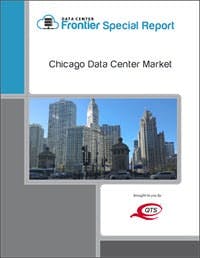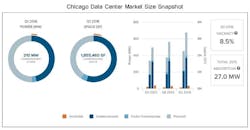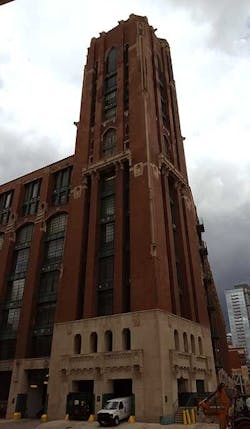This week we begin a series of stories on the leading geographic markets for data center space. Data Center Frontier is partnering with DatacenterHawk to provide in-depth market reports on each city we profile.
Chicago is one of the nation’s premier markets for data center services, occupying a central place in America’s geography and mission-critical infrastructure.
The Windy City is a major hub for Internet and financial infrastructure, with active communities of data center users and service providers. Chicago is America’s third-largest city, and an active business market with nearly 40 Fortune 500 companies headquartered in the metro area.
Data Center Frontier Special Report: The Chicago Data Center Market. Download It Now.
Chicago is distinctive in that it sees demand for data center space from a wide range of industries. It is home to major trading exchanges for stocks, commodities and options, making the city a hotbed of activity for the financial services industry.
The region has also become a favored location for hosting, colocation and cloud computing companies. Chicago sees strong demand from the enterprise sector as well, both for primary data centers and as backup/disaster recovery facilities.
The greater Chicago market is home to more than 1.85 million square feet (SF) of commissioned data center space, representing 210 megawatts (MW) of commissioned power, according to DatacenterHawk, a Dallas-based research firm that tracks the availability of data center space. Demand for space is strong, as reflected in the vacancy rate of just 8.5 percent for the region.
The Chicago data center market appears poised for growth. Leasing was strong during 2015, with net absorption of 27 MW of capacity. This robust leasing has prompted new construction, with up to 200 MW of additional capacity planned for coming years.
There are several new players entering the Chicago market, while incumbent providers are adding space to accommodate future demand.
Graphic: DatacenterHawk
Chicago is among the regions positioned to benefit in coming years as new technologies drive massive demand for data center space and network capacity. Chief among these trends is the gradual shift of IT capacity from enterprise data centers to web-scale cloud computing platforms, which is already driving historic demand from cloud builders like Amazon, Microsoft and Google.
Other demand drivers include the growth of “BigData” analytics, the Internet of Things, virtual reality and connected cars. Each of these trends are in their early days of adoption, and will require enormous volumes of data storage and connectivity, positioning the data center industry for growth into the foreseeable future.
The Greater Chicago data center market consists of two sub-markets with unique characteristics.
Downtown Chicago
Downtown Chicago is an urban market with excellent connectivity and a limited amount of space.
350 East Cermak, the 1.1. million square foot carrier hotel owned by Digital Realty, is a key connectivity hub in Downtown Chicago. (Photo: Rich Miller)
The downtown data center real estate is focused on “carrier hotels” that lease space to IT and telecom companies, many seeking proximity to the city’s financial trading platforms. The massive. 1.1 million square foot Digital Realty facility at 350 East Cermak has emerged as Chicago’s primary data hub, housing dozens of service providers.
Downtown Chicago has primarily been a retail colocation market, offering connectivity and interconnection services but few large physical footprints. Space at 350 Cermak and other downtown hubs has been in short supply in recent years, with limited new inventory coming online.
That’s beginning to change, with several new data center developments underway or on the drawing board. QTS Realty Trust, Inc. (QTS) has just opened a data center in the former Chicago Sun-Times printing plant on South Ashland Avenue. Windstream is the first announced customer for the facility.
Meanwhile, Ascent is building a new facility on South Desplaines, and 1547 Realty is seeking to purchase the Schulze Banking Company building on the Chicago’s South Side and plans to convert it for mission-critical space.
Suburban Chicago
Suburban Chicago is home to a thriving market for wholesale providers and single-tenant data centers. Chicago’s suburbs offer the larger footprints that are difficult to find downtown. Data center development west of Chicago heated up in 2007, when DuPont Fabros and Equinix built huge data centers in Elk Grove Village and Microsoft leased a facility in Northlake to host its cloud services.
Leasing in the suburban market was initially slow, but soon accelerated with large deals for space by service providers like Rackspace and ServerCentral. Enterprise deals soon followed, notably at the Ascent Corp. site in Northlake. Digital Realty has also made the move to the suburbs with a large campus in Franklin Park.
In March, the CME Group sold its 428,000 square foot data center in Aurora, which houses its Globex trading platform, to wholesale provider CyrusOne for $130 million. The deal is structured as a sale/leaseback, with CME continuing to operate under a long-term lease. The building includes vacant space, which CyrusOne will seek to lease. This week CyrusOne said it has already pre-leased 2 MW of that space, which is currently under construction.
The sale/leaseback structure seen in the CyrusOne-CME deal is an increasingly popular way for providers to gain inventory, and market watchers predict there may be more in the pipeline. “There are a couple enterprise users contemplating sale-leasebacks which will further provide additional supply,” reported North American Data Centers.
For more on the Chicago market, we invite you to download the Data Center Frontier Special Report: The Chicago Data Center Market.
About the Author






